Volkswagen Group’s $5 billion investment in Rivian forms a joint venture to develop cutting-edge EV architecture and software. The judicious move strengthens both companies’ market positions, both helping Rivian advance its R2 and R3 models while addressing Volkswagen’s software challenges.

German automaker Volkswagen Group has announced a $5 billion investment in US-based pure-electric vehicle (EV) maker Rivian. The move, disclosed on Tuesday, aims to form a joint venture (JV) that will advance EV architecture and software, benefiting both companies. The partnership marks an important moment for the automotive industry as it navigates the complexities of transitioning to electric mobility.

RJ Scaringe, CEO of Rivian, highlighted that the investment would provide essential funding for the development of the company’s upcoming R2 SUVs, slated for an early 2026 release, and the planned R3 crossovers. “The partnership will enable Rivian to cut operating costs by leveraging volumes of supplies including chips and components,” he said. The alliance is also expected to help Rivian become cash-flow positive by licensing its existing intellectual property to the JV, with the R2 being the first vehicle to utilise the new software from the partnership.
The mutual benefits of automotive cooperation
For Volkswagen, the investment represents a strategic effort to address its ongoing software challenges. VW’s software division, Cariad, has faced significant issues, including budget overruns and unmet goals, which contributed to the exit of former VW Group CEO Herbert Diess in September 2022. The new partnership is seen as a crucial step to enhance VW’s software capabilities and accelerate the development of software-defined vehicles (SDVs).
“Through our cooperation, we will bring the best solutions to our vehicles faster and at lower cost,” said Volkswagen Chief Executive Oliver Blume. “We are strengthening our technology profile and our competitiveness.”
The JV aims to build on Rivian’s “industry-leading” software and electrical architecture, creating a next-generation SDV platform, and the technology will eventually be integrated into various Volkswagen brands, including Audi, Porsche, Lamborghini, and Bentley.
“This is a lifeline for Rivian, because like many EV startups, [without such intervention] it’s likely to fail.”
- Daniel Harrison, Automotive Analyst, Ultima Media

Speaking to BBC Radio Scotland, Daniel Harrison, Automotive Analyst, Ultima Media, provided comment on the deal: “This joint venture is a very interesting development. Fundamentally, it’s a mutually beneficial arrangement for both companies because Rivian, as an EV startup, is burning through cash from investors very quickly.
”At the same time, Volkswagen has its own in-house software division called Cariad, which by all accounts has failed to produce a competitive product. The JV is anticipated to streamline costs for both companies by combining their strengths and scaling innovations globally. Rivian’s established electrical architecture and software platform will serve as the foundation for the JV’s SDV development, benefiting future vehicles from both companies.
“From that perspective, this joint venture makes perfect sense to play to their respective strengths. And in many ways, this is a lifeline for Rivian, because like many EV startups, [without such intervention] it’s likely to fail.”
The case of Fisker and other possible bankruptcies
Harrison added that the recent bankruptcy of Fisker Automotive, is something that’s likely to repeat itself with other EV startups, unless they are able to quickly achieve economies of scale on components to bring down the prices and make their products competitive. He points out that such a joint venture allows both sides to access technologies that will help them compete against cheaper Chinese electric vehicles that are inevitably going to start flooding western markets soon.
“Overall, [the collaboration is] a very positive move for Volkswagen, but it’s also a tacit admission of failure of their own in-house software”
- Daniel Harrison
“Volkswagen, committed to launching 25 EV models in North America by 2030, views this partnership as a means to bolster its position in the EV market. The investment in Rivian is also expected to benefit VW’s off-road EV brand, Scout, which is building a plant in South Carolina to compete with Rivian’s offerings. VW said Cariad will play a central role in scaling up software used across its brands.”
According to a press release outlining the details of the deal, Volkswagen will initially invest $1 billion in Rivian through a convertible note, set to convert to stock by December 1, 2024, subject to regulatory approvals, with an additional $1 billion payment to be made at the JV’s inception, expected in the fourth quarter of this year. Volkswagen will further invest $2 billion in Rivian stock, with $1 billion each in 2025 and 2026, contingent upon Rivian meeting specific milestones, along with providing a $1 billion loan in 2026.
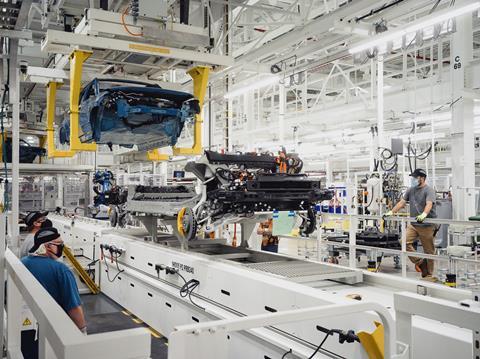
Rivian emphasised the importance of this capital infusion in its growth strategy: “Today’s announcement is expected to create a robust capital roadmap to support our future growth,” it said.
The partnership comes at a critical time for the auto industry, as EV startups face challenges due to high interest rates and reduced cash flow, while traditional automakers strive to develop battery-powered vehicles and advanced software.
Rivian, despite reporting significant losses per vehicle delivered, has managed to maintain a steadier footing compared to other EV startups. The company has been reducing costs through renegotiated supplier contracts and in-house production of some parts, along with overhauling its manufacturing processes.
The VW-Rivian JV: a symptom or a cause?
Weighing up the potential pros and cons of the deal, Harrison commented: “there is a risk [to this joint venture), in the sense that this is quite limited. Its focus is confined to software-defined vehicles and architecture. (It’s not going to share things like battery technology. VW has its own PowerCo production of those batteries, but it’s what they call a targeted partnership, in that it’s limited to a very specific area).
“VW is not acquiring the company, and it’s not merging with it. It’s just a very specific technology partnership which is mutually beneficial to both parties. And I actually think it’s a good move, given the struggles that Volkswagen has clearly had with software, with their own in-house division.
“There have been huge problems there, and it’s actually one of their weaknesses as a company. If you compare that with Chinese electric vehicles, their software and the whole interface is far more slick - and consumers are responding to that. Therefore, I think that overall, it’s a very positive move for Volkswagen, but it’s also a tacit admission of failure of their own in-house software.”
“Cost is the primary barrier that most consumers are talking about in terms of purchasing electric vehicles”
- Daniel Harrison, Automotive Analyst, Ultima Media
Electric vehicle sales across the world are generally flatlining or slightly declining from where they were expected to be, but “that doesn’t mean they’re falling off a cliff,” said Harrison, “but it does mean that all of the car companies, from the smaller players like Rivian, all the way up to the big players like VW and Tesla, are having to make heavy cost-cutting moves and looking at ways to find complementary technologies with partnerships like this to achieve those economies of scale.
”That incudes faster research and development which brings down costs, since cost is the primary barrier that most consumers are talking about in terms of purchasing electric vehicles. It’s also about charging infrastructure and other issues, but cost appears to be the primary one.” And now we have much cheaper electric vehicles from China potentially competing with them.
“Notwithstanding the tariffs that the US and Europe are going to impose on them, they’re still going to be cheaper and more competitive. So the legacy automotive companies in Europe and North America have no choice but to address cost concerns and bring down the price.”
On the market side of things, following the announcement of the VW-Rivian JV, Rivian’s shares surged by approximately 50% in extended trading, potentially increasing the company’s market value by nearly $6 billion if gains hold on Wednesday. The surge is said to reflect investor confidence in the partnership’s potential to bolster Rivian’s financial stability and market competitiveness.





























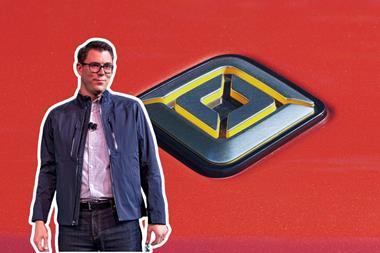
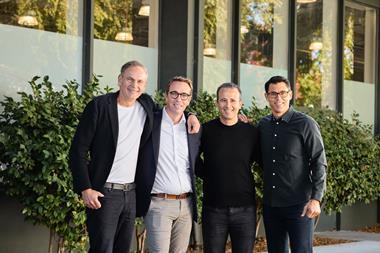
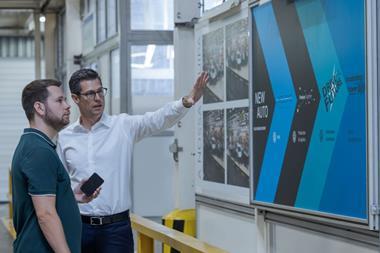

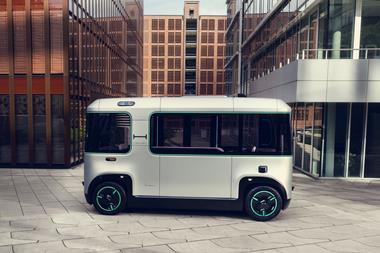
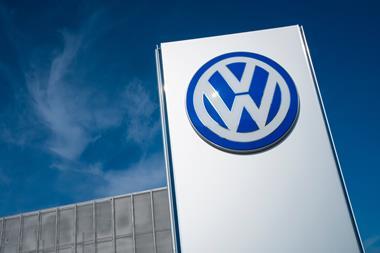



No comments yet